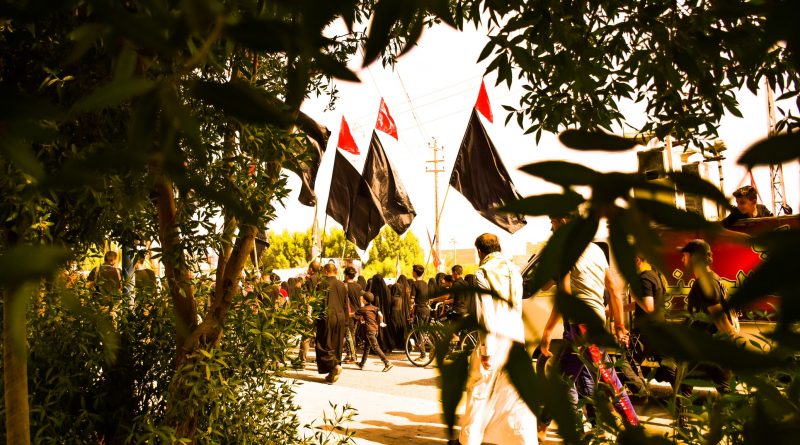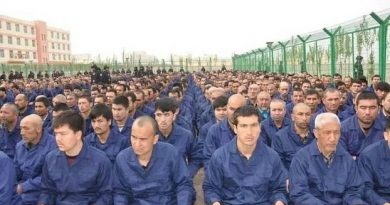Iraqi Election Yields Historically Low Turnout
Austin Delsontro
Staff Writer
On October 10, Iraq held their sixth parliamentary election since the fall of Saddam Hussein after the United States-led invasion of Iraq in 2003, reports The New York Times. The parliamentary election decides the 329 members of the Council of Representatives who elect Iraq’s president and confirm the prime minister.
Initial results from the parliamentary elections revealed populist Shiite cleric Moqtada al-Sadr’s party, the Sadrist Bloc, as the biggest winner, according to The Washington Post. The biggest losers would be an alliance of candidates representing Shiite militias supported by the Iranian government, known as the Fatah Alliance. The Sadrist candidates beat out many of Iran’s preferred Fatah Alliance candidates to win the most seats of any party, albeit well short of the 165 seats necessary for a majority. The Sadrist Bloc gained close to twenty seats, with a plurality of 73 representatives, while the Fatah Alliance lost more than thirty seats, with just 17 representatives. After the election results were announced, supporters of al-Sadr celebrated into the night.
In a speech after his party’s victory, The Washington Post quotes Moqtada al-Sadr as affirming “today [as] a day of victory” and expressed his desire for Iraqis “to live without occupation, wars, militias, terrorism, kidnappers and fearmongering.”
While the election results are promising for the Sadrist Bloc, they may not be a true indication of the country’s beliefs. Reuters estimates a turnout of just 41 percent in Iraq’s election on Sunday, speculating that this low turnout is a sign of dwindling trust in political leaders and the Iraqi government. Though not as low as election officials had initially feared, the turnout rate is still a record low in the post-Saddam Hussein era. That turnout was even lower than the previous 2018 elections, which set the previous record low with 44 percent.
The Associated Press attributes these historically low voter turnouts to the widespread distrust of the Iraqi government, exacerbated further by the brutal suppression of a series of protests in late 2019 and early 2020. Tens of thousands of Iraqi citizens took to the streets to protest corruption in government, high unemployment, and a lack of efficient public services, but the protests devolved into calls to overthrow the entire government. These protests were met by Iraqi forces and Iranian-backed militias, who used violent suppression methods, including live bullets and tear gas, leading to more than 600 deaths and thousands of injuries in just a few months.
Many Iranian-backed parties and armed groups have denounced the early results from Iraq’s election as “manipulation” and a “scam,” reports Al Jazeera. Several parties, including the Fatah Alliance, announced after the election results were reported that they “reject the results” and “will appeal against them.” The Iranian-backed Kataib Hezbollah militia group’s spokesperson, Abu Ali al-Askari, described the election as the “biggest fraud and circumvention against the Iraqi people in modern history.” While there has yet to be any evidence of foul play in this election, many onlookers cite Iran’s heavy-handed influence in Iraqi politics and the brutal suppression of the protests by these pro-Iranian militias as a reason for Fatah’s poor showing.
Even though Iraqi authorities relented to the protesters by moving the election to this year, a year earlier than originally scheduled, as Politico points out, the death toll, including a string of assassinations and attempted killings, and the brutal suppression of the protesters, prompted many protesters to boycott the election. While most Iraqis long for some sort of change, few anticipate change ever happening. Politico detailed the circumstances of the election, with more than 250,000 security personnel across the country who were tasked with “protecting” the vote. Outside of polling stations, soldiers, police, and armed forces were deployed. Some voters even claimed to be patted down and searched.
Eighteen years after the U.S. invasion of Iraq, The Washington Post postulates that this election could be seen as a referendum on the political system currently installed. The nation is divided along religious and ethnic lines, with widespread corruption throughout the government. On election day, many Iraqi citizens stayed home, either refusing to vote or actively rejecting an opportunity to legitimize the current government with their votes. Iraq is a country in crisis, enduring decades of corruption and a ballooning unemployment rate.
According to Iraq’s Constitution, the majority party in parliament will choose the country’s next prime minister. However, as the Associated Press notes it is unlikely any of the competing coalitions will be able to secure a clear majority, necessitating a lengthy process involving negotiations to select a consensus prime minister and a new coalition government. Current Prime Minister Mustafa al-Kadhimi has played a key role as a mediator in Iraq’s negotiations between regional rivals Iran and Saudi Arabia. Those in the region and across the globe will be watching to see if al-Kadhimi will secure a second term.


